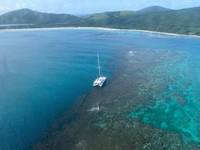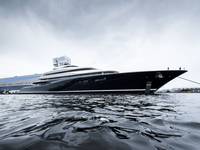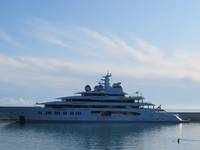AKASOL Intros Lithium-Ion Battery
The German expert for lithium-ion battery systems AKASOL announced that, its fast-charging battery systems power a range of prototype vessels including the brand new 31.2m Vanadis hybrid superyacht from Italian builder Cerri Cantieri Navali (CCN).
The electric-vehicle battery supplier for commercial vehicles said in a press release that Vanadis, the first in CCN’s new ‘E-Prop’ line of hybrid propulsion motor yachts, is powered by traditional diesel engines and an electric engine, which are supported by generators and AKASOL’s AKASystem 15 OEM battery system.
The vessel is capable of cruising short distances and anchoring under electric power, minimizing vibration, diesel exhaust pollution and noise during port calls or sleeping, all while cutting fuel costs. It reaches a maximum speed of 12.5 knots and an electric cruising peak of 8 knots, while the lithium-ion battery systems allow for zero-emission anchorage for up to 17 hours.
AKASOL's battery systems are used in the Mercedes-Benz eCitaro of Daimler subsidiary EvoBus, Alstom’s Coradia iLint hydrogen fuel cell train and also equip prototype vessels from Baltic Yachts and Sanlorenzo.
"AKASOL’s full range of automotive systems will obtain DNV GL marine certification in 2019. This gives the maritime market access to these flexible and fast-charging solutions, setting a new energy content benchmark for marine battery systems at competitive prices enabled by series development," said the release.
AKASOL will present the 2nd generation of the AKASystem OEM PRC at the Electric & Hybrid Marine World Expo 2019.
The first generation currently powers the new hybrid superyacht from CCN, the eCitaro and buses from a large Swedish manufacturer. Compared to the 1st generation, the 2nd generation will offer an energy increase of more than 33% The system can achieve charge rates of 2 C and be fast-charged. Currently in the test and validation process, the 2nd Generation AKASystem OEM PRC will be available at the end of 2019 before entering serial production for two major commercial vehicle customers in the middle of 2020.




